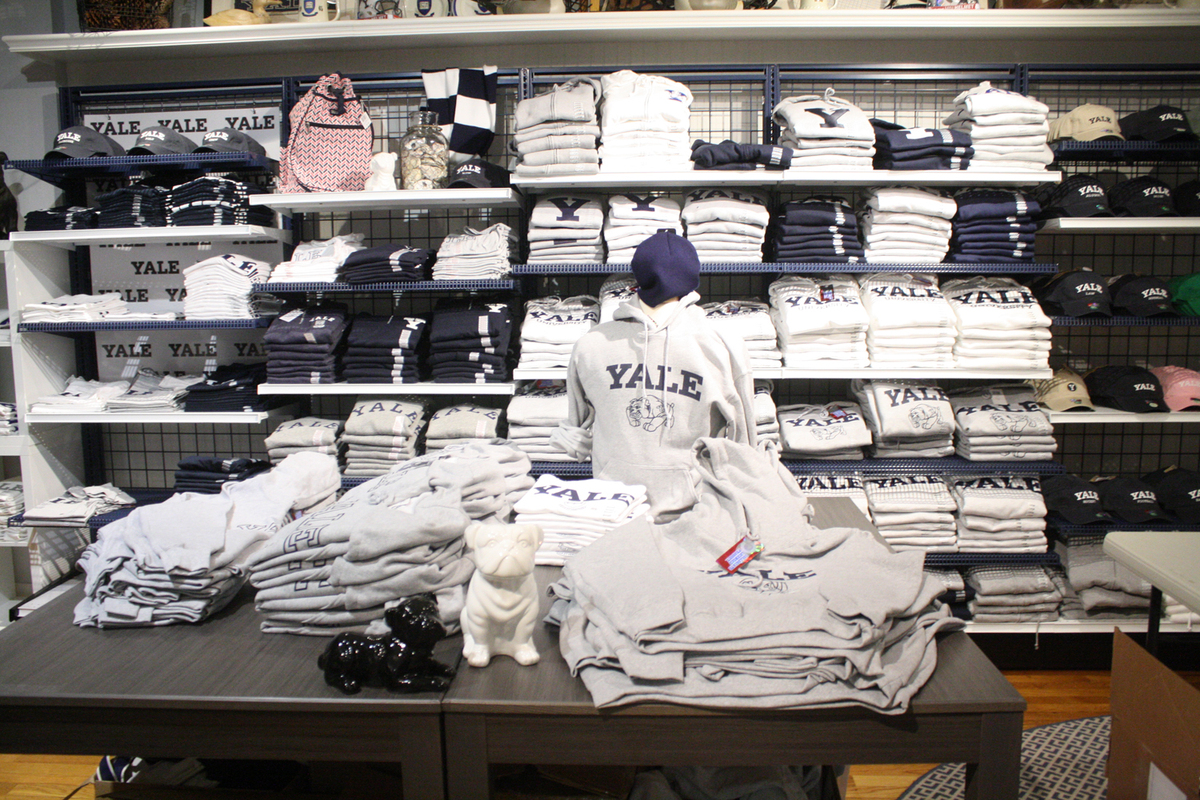Yale grants licenses to Zara, H&M and Pacsun to bolster “awareness” of its brand
The University offers licenses to companies who wish to incorporate Yale logos into their products, collecting royalty fees and building the University’s international reputation.

Annelisa Leinbach, Contributing Photographer
Scores of sweatshirts, sweatpants, t-shirts and other products that bear Yale’s name can be found in the catalogs of international clothing companies not directly affiliated with the University. Some sell for upwards of $700, with royalty fees supporting the University’s various costs.
H&M, Forever 21, Pacsun and Zara are among the brands that currently have the license to print and sell Yale products. Together, they offer a wide array of shirts and sweatshirts, selling for less than $50 to more than $500. The University grants special licenses to companies who wish to brand their products with the Yale name. While the terms of the contracts vary across companies, Yale grants access to the University’s insignia — as long as the companies maintain the “integrity of the Yale marks,” said Paul Murawski, director of marketing and trademark licensing.
“If Yale is for sale to the highest bidder, that should be made clear,” French lecturer Ruth Koizim said. “This should not be something that people discover thumbing through an online catalog. This is just another example of where there is a woeful lack of transparency.”
The University collects royalty fees from many of the Yale-branded items that companies sell, according to Murawski. He added that the fees are funneled directly into the University’s general fund.
When a company approaches Yale to obtain a license, they must first demonstrate their reputation, Murawski said. This entails sharing their company history, other licensees they work with, product categories and channels of distribution.
In addition, companies must fill out an application, submit product samples, show proof of membership to either the Fair Labor Association or the Ethical Trade Initiative and submit a certificate of insurance to support the high quality of their product, according to Murawski.
But Koizim said she was surprised that the University was licensing its logo to companies, saying that she should have been made more aware of this decision given her status as a faculty member. She first discovered that Zara was selling University products from her 29-year-old son, who “stumbled upon” a Yale sweatshirt on the website.
According to Murawski, the University grants licenses for a variety of reasons — not strictly financial.
“Our global licensing program bolsters awareness of the University — especially overseas — and strengthens our ability to stop misuse of the Yale name and marks,” Murawski wrote in an email to the News.
Still, Koizim called Calvin Klein’s Yale sweater — which costs over $700 — “classist and exclusionary.” One student similarly expressed discontent, describing the licensing agreement as a seemingly corporate move.
“Marketing the Yale logo as a fashion accessory emphasizes the idea that Yale is more of a brand name than a University,” Dorothea Robertson ’25 said.
But Alessia Degraeve ’25 was excited about the Yale merchandise. Zara, the clothing brand, currently sells both children’s and adult apparel featuring the Yale name — reaching a broad customer base worldwide.
“I got to Yale to find out my roommate had the same Zara Yale sweatpants as I did!” Alessia Degraeve ’25 said.
Major terms of the licensing contracts include product category, channels of distribution, approved marks and length of agreement.







